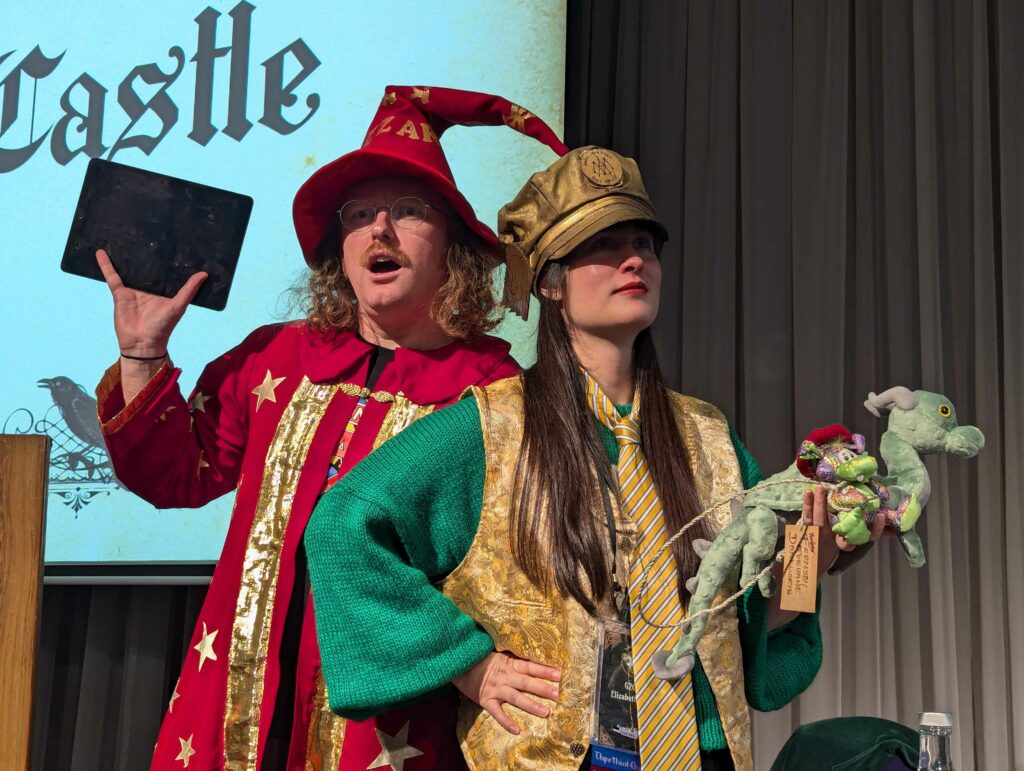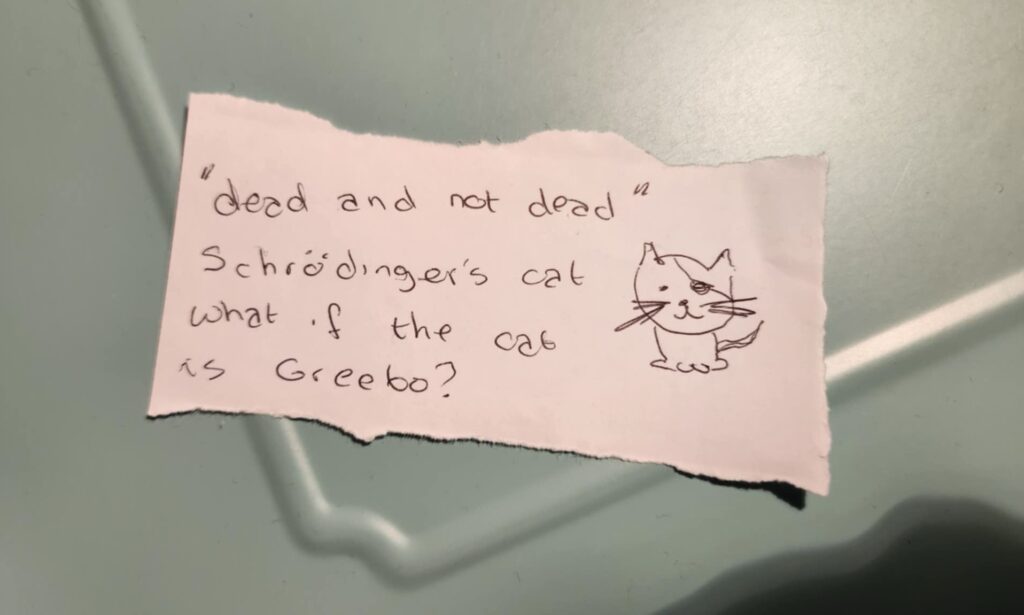#Pratchat86 Notes and Errata
These are the episode notes and errata for Pratchat episode 86, “Of the Watch the Last”, discussing Terry Pratchett’s thirty-ninth Discworld novel, 2011’s Snuff, with guest Freyja Stokes.
Iconographic Evidence
Watch this space!
Notes and Errata
- The episode title adapts one of the common formats for goblin names to describe Snuff in bittersweet terms. The book is the eighth and last in the Watch sub-series, though characters from the Watch books do appear in the final two Discworld novels. (No spoilers about who, though.)
- There are several publicly available theses and academic articles about Terry Pratchett and/or Discworld from Australian scholars, most (but not all) the result of the Pratchett Scholarship at UniSA. Here are are a few we’ve found; references are in Australian Government (author-date) style.
- Arasu P (2019), All the Disc’s a Stage: Terry Pratchett’s Wyrd Sisters as Metafiction, Monash University, Melbourne, accessed 8 June 2025.
- Stokes F (2023), The turtle moves : how Terry Pratchett’s Discworld does vernacular theory, UniSA, Adelaide, accessed 8 June 2025.
- Wyld J (2024), Pebbles and the great ocean of truth : artificial & unauthorised paratexts of the Discworld, UniSA, Adelaide, accessed 8 June 2025.
- There are several published collections of Pratchett-related academic writing, including:
- Discworld and the Disciplines: Critical Approaches to the Terry Pratchett Works (Anne Hiebert Alton and William C. Spruiell (eds), 2014)
- Philosophy and Terry Pratchett (Jacob Heald and James B South (eds), 2014)
- Terry Pratchett’s Narrative Worlds: From Giant Turtles to Small Gods – Critical Approaches to Children’s Literature (Marion Rana (ed), 2018)
- Terry Pratchett’s Ethical Worlds: Essays on Identity and Narrative in Discworld and Beyond (Kristin Noone and Emily Lavin (eds), 2020)
- Powers and Society in Terry Pratchett’s Discworld: Building a Fantasy Civilization (Justine Breton (ed), 2025)
- How Christie wrote her mysteries – going back and putting the clues in afterwards
- Miss Fisher’s Murder Mysteries was a series of historical crime novels starring glamorous sleuth Phryne Fisher (played by Essie Davis in the television adaptation, which was produced from 2012 to 2015; there was a film too, but forget that, just watch the show). Mostly set in Melbourne, the books were written by Australian author Kerry Greenwood, who sadly passed away on 26 March 2025, aged 70. Greenwood was, by all accounts, a delightful person. GNU Kerry Greenwood. We’ve previously mentioned Phryne in #Pratchat37 (about Johnny and the Bomb) and #Pratchat75 (about the Guards! Guards! boad game), as well as the bonus episode #EeekClub2023.
- Downton Abbey was a hit British television series about fictional aristocratic family the Granthams and their servants, set in their eponymous country estate in the early twentieth century. It ran for six series on ITV between 2010 and 2015, and two feature films in 2019 and 2022. We’ve previously talked about it, most notably in #Pratchat36 (about Carpe Jugulum), #Pratchat48 (about Thief of Time) and #Pratchat61 (about the previous Watch book, Thud!).
- The children’s authors we mentioned who scratch the itch of “gross stuff for kids” were:
- Roald Dahl, specifically books like The Twits and The Witches; we’ve previously mentioned Dahl and his work in #Pratchat4, #Pratchat9, #Pratchat59, #Pratchat65 and #Pratchat72.
- R L Stine, author of the Goosebumps books, who we’ve previously mentioned in #Pratchat18 and #Pratchat33.
- Paul Jennings, Australian author of many books of weird and gross short stories, which were adapted into the iconic 1990s television series Round the Twist. We’ve mentioned him before in #Pratchat15, #Pratchat32, #Pratchat38 and #Pratchat43.
- We had to cut Freyja’s explanation of spontaneous human combustion for time, but the short version is that it happened to people sitting in armchairs which, at that time, were stuffed with and covered in extremely flammable materials. Even a small spark or ember would cause them to go up instantly in a fire so hot, it rendered a human body quickly into ash. Only the sitter’s outstretched foot would escape. Charles Dickens did indeed believe in it; a character dies from spontaneous human combustion in Bleak House.
- The book series Freyja mentions with the harp-playing subjugated alien is Sheri S. Tepper’s Marjorie Westriding trilogy, set on the planet of Hobbs Land, hence the alternate name “Hobbs Land Gods”. We think the specific book is probably the second one, Raising the Stones.
More notes coming soon!
Thanks for reading our notes! If we missed anything, or you have questions, please let us know.


